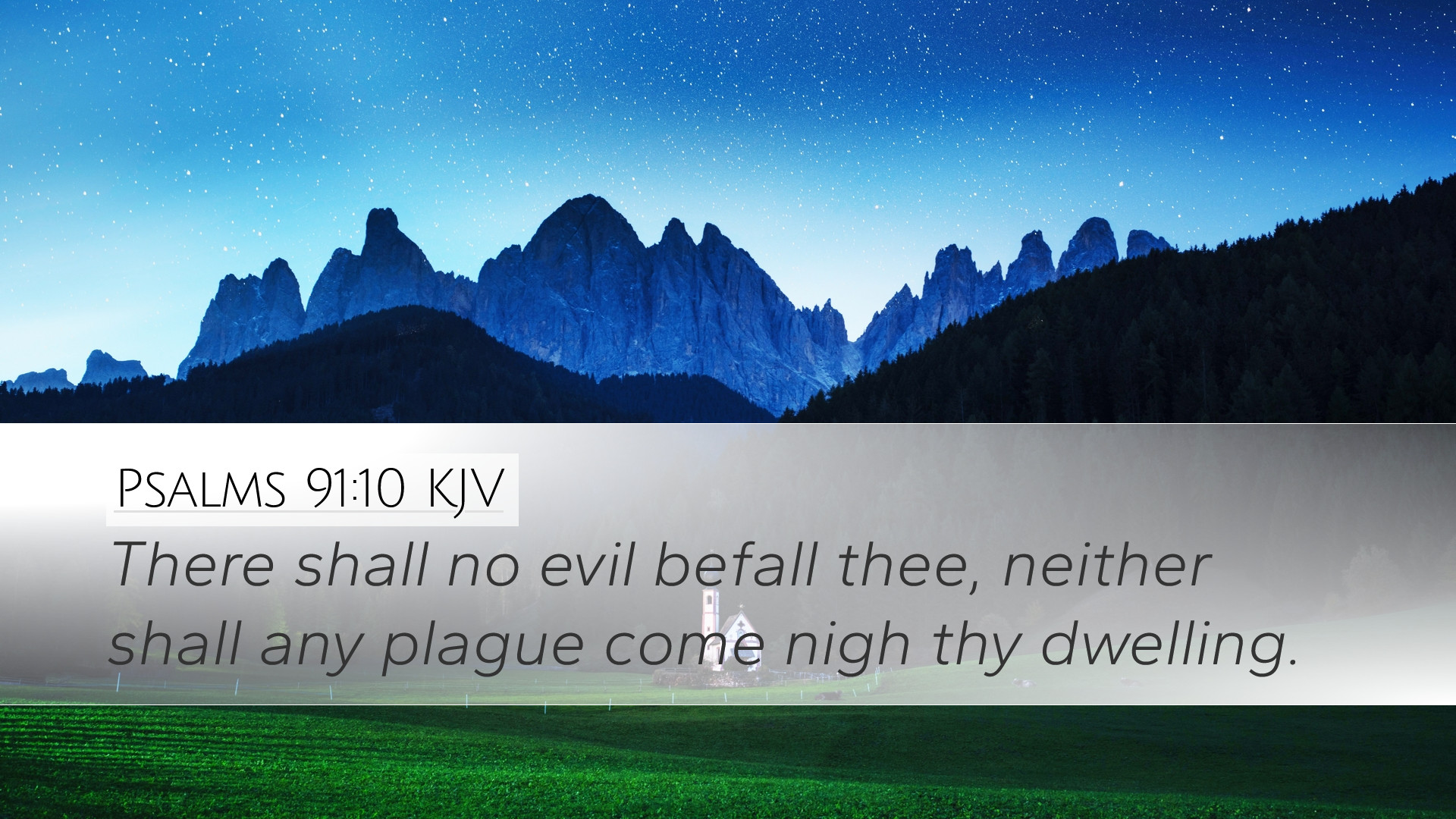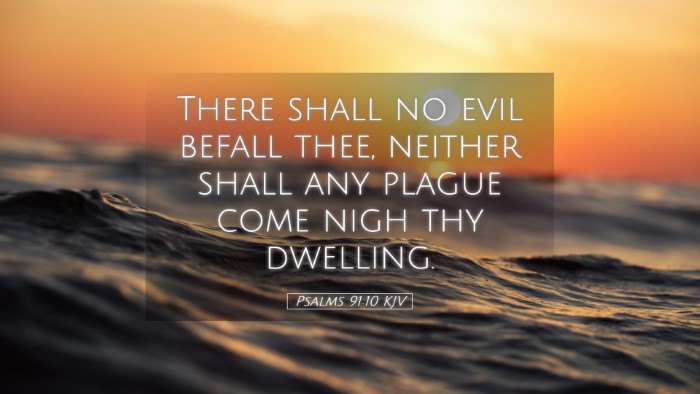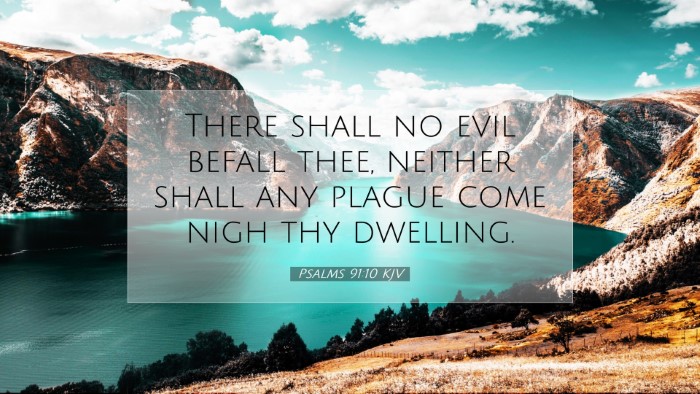Commentary on Psalms 91:10
Psalms 91:10 states, "No evil shall befall you, nor shall any plague come near your dwelling." This verse is a comforting promise of divine protection and assurance. It serves as a powerful reminder of God’s faithfulness to those who seek refuge in Him.
Overview of Context
This Psalm is attributed to Moses and is often seen as a hymn of trust in God. It articulates the various aspects of God’s protection and care, emphasizing the believer's safety in His presence. The context of the Psalm includes themes of faith, safety, and the unwavering commitment of God to His people.
Insights from Matthew Henry
Matthew Henry describes this verse as a declaration of God’s promise to shield His people from harm. He notes that the wording "No evil shall befall you" denotes a profound assurance that in God's protective care, threats will not materialize. Henry emphasizes that this promise is not merely for physical safety but encompasses spiritual and emotional protection as well.
Spiritual Implications
Henry further explains that the absence of evil signifies the overarching sovereignty of God. Believers should focus on their relationship with God, rather than the dangers surrounding them. Henry encourages readers to foster an unwavering faith, recognizing that trials may arise, yet God remains their refuge.
Albert Barnes’ Commentary
Albert Barnes adds depth to the understanding of this promise, drawing attention to the nature of evil and the meaning of plagues in biblical context. Barnes interprets "evil" as any form of calamity or misfortune, affirming that divine protection does not imply a life devoid of challenges but rather assurance against ultimate harm.
The Assurance of Health
When Barnes references "plague," he aligns it with both physical afflictions and broader societal issues. He suggests that the promise extends to health in a holistic sense—spiritual, mental, and physical well-being. Hence, Christians can face uncertainties without fear, believing in God’s ability to deliver and restore.
Adam Clarke’s Interpretative View
Adam Clarke emphasizes that the verse illustrates God's personal engagement with His people. In Clarke's view, this verse not only assures physical protection but also expresses God’s intent to dwell among His people, shielding them from dangers. Clarke highlights that the protective promise is contingent upon one's faithfulness to God's ways.
The Conditional Nature of the Promise
Clarke notes that the assurance in this verse may carry an implicit conditionality suggesting believers must remain steadfast in righteousness. This reinforces the idea that while God’s protection is a promise, there is a call to align one's life with divine principles to fully experience that protection.
Theological Implications
This Psalm and the verse in particular reveal key theological themes:
- Divine Sovereignty: God is sovereign over all evil and calamities.
- Faithfulness and Trust: There is an expectation for believers to trust in God’s promises deeply.
- Conditional Protection: While God's protection is a promise, it may have conditions that require faithful living.
Practical Applications
For pastors and leaders, this verse serves as an enduring message to impart to their congregations:
- Encouragement in Trials: This verse reassures that God’s presence will sustain believers through personal trials and societal upheaval.
- Promoting Faithfulness: It encourages teaching on maintaining integrity and righteousness as foundations for experiencing God’s protection.
- Understanding Spiritual Warfare: Recognizing that while physical threats exist, spiritual wellbeing should be prioritized, knowing that God protects the soul.
Conclusion
Psalms 91:10 encapsulates God’s promise of protection, a theme that resonates throughout Scripture. The insights from Matthew Henry, Albert Barnes, and Adam Clarke demonstrate the depth of meaning found in trusting God’s deliverance. As believers reflect on this verse, they are invited to embrace the assurance that no evil will truly harm them, as they dwell in the shelter of the Most High.


